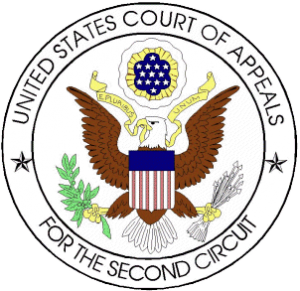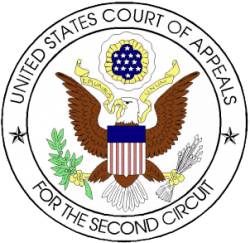 The U.S. Court of Appeals for the Second Circuit recently held that a debtor in bankruptcy can pursue claims under the federal Fair Debt Collection Practices Act in district court for trying to collect a discharged debt, reversing a judgment dismissing the FDCPA claims and requiring the plaintiff seek relief in bankruptcy court.
The U.S. Court of Appeals for the Second Circuit recently held that a debtor in bankruptcy can pursue claims under the federal Fair Debt Collection Practices Act in district court for trying to collect a discharged debt, reversing a judgment dismissing the FDCPA claims and requiring the plaintiff seek relief in bankruptcy court.
A copy of the opinion in Garfield v. Ocwen Loan Servicing, LLC is available at: Link to Opinion.
The debtor defaulted on her mortgage loan and filed for Chapter 13 bankruptcy, agreeing in her reorganization plan to pay the arrearage on her mortgage in monthly payments. The debtor received a discharge of her personal obligation under the mortgage in August 2013. She later agreed to make monthly payments in order to avoid foreclosure.
The debtor made only one payment post-discharge, and in February 2014 the loan servicer demanded the debtor pay the arrears for post-bankruptcy monthly payments as well as the mortgage loan arrears that had been discharged. The servicer also reported to one of the credit reporting agencies that the debtor owed the discharged amount.
The debtor sued in federal district court, alleging that the servicer’s attempt to collect the discharged arrears violated several provisions of the FDCPA. In addition, the debtor alleged that the servicer violated the FDCPA by the manner in which it tried to collect the monthly payments she agreed to make post-discharge. Namely, the borrower alleged that the servicer supposedly failed to give the so-called “mini-Miranda warning” during conversations with her, and supposedly failed to send the disclosures required under 15 U.S.C. § 1692g within five days of the first contact.
The district court dismissed the debtor’s complaint, ruling that the federal Bankruptcy Code provides the exclusive remedy for alleged violations of the bankruptcy discharge injunction through a motion for contempt under 11 U.S.C. § 105(a). In addition, the district court held that the debtor’s FDCPA claims were in direct conflict with the provisions of the Bankruptcy Code and were thus precluded.
On appeal by the debtor, the Second Circuit began by discussing whether the Bankruptcy Code impliedly repealed all or some FDCPA claims for violating the discharge injunction.
“When it is claimed that a later enacted statute creates an irreconcilable conflict with an earlier statute, the question is whether the later statute, by implication, has repealed all or, more typically, part of the earlier statute.” Repeal by implication is disfavored, and “[i]n the absence of some affirmative showing of an intention to repeal, the only permissible justification for a repeal by implication is when the earlier and later statutes are irreconcilable.”
The Second Circuit then explained that where, as here, “the later statute is the Bankruptcy Code, a distinction must be made between claims brought under the earlier statute during the pendency of a bankruptcy proceeding and those brought after a discharge.” The Court pointed out that four federal Circuit Courts of Appeals have addressed FDCPA claims filed while the bankruptcy was pending.
The Court noted that, while the Second Circuit in Simmons v. Roundup Funding, LLC “has ruled that the FDCPA does not authorize suit during the pendency of bankruptcy proceedings,” that decision “does not include the word ‘repeal’ ” and “appeared to find the FDCPA inapplicable” while the bankruptcy case is pending. In addition, the Court noted that the Ninth Circuit also “ruled that the Bankruptcy Code precludes FDCPA claims brought during the pendency of bankruptcy proceedings” in Walls v. Wells Fargo Bank, N.A.
On the other hand, two Circuits, the Seventh and Third, have held that although the two statutes overlap at certain points, there was no repeal by implication and they are not in irreconcilable conflict, with both Circuits allowing debtors to bring FDCPA claims during the pendency of a bankruptcy case.
Turning to the case at bar, which involved post-discharge FDCPA claims, the Court concluded that “the Bankruptcy Code does not broadly repeal the FDCPA for purposes of FDCPA claims based on conduct that would constitute alleged violations of the discharge injunction. No irreconcilable conflict exists between the post-discharge remedies of the Bankruptcy Code and the FDCPA.”
The Court reasoned that in the post-discharge context, the debtor – in the Court’s words – “no longer has the protection of the bankruptcy court,” which in Simmons it “deemed decisive on the preclusion issue prior to discharge.” Moreover, the Bankruptcy Code provision governing the discharge injunction, 11 U.S.C. § 524(1)(2), “does not explicitly create a cause of action for its violation, whereas the automatic stay provision provides such a remedy, see id. § 362(k).”
The Second Circuit then turned to address whether the Bankruptcy Code repealed by implication specific provisions of the FDCPA for alleged post-discharge conduct that violated the discharge injunction.
The loan servicer argued that debtor’s FDCPA allegations irreconcilably conflicted with the Bankruptcy Code’s post-discharge remedies. The Court disagreed, reasoning that the servicer’s “communication, even without a mini-Miranda warning, was an attempt to collect a discharged debt in violation of the Bankruptcy Code. The absence of a mini-Miranda warning also violated the FDCPA. There is no conflict.”
Turning to the debtor’s claims that the servicer violated subsections 1692e(11) and 1692(a)(3) by trying to collect the post-bankruptcy monthly payments the debtor agreed to make to avoid foreclosure, the Court concluded that “these alleged violations do not conflict with any provisions of the Bankruptcy Code.”
Finally, the Court rejected the district court’s reasoning that even if some of the debtor’s FDCPA claims did not directly conflict with the Bankruptcy Code’s discharge injunction, the complaint should be dismissed under the Supreme Court’s Colorado River abstention doctrine because that decision “created a limited abstention doctrine in the context of ongoing, parallel state proceedings, which do not exist here.”
However, the Second Circuit also held that “[w]e do not rule out the unlikely possibility that in adjudicating a debtor’s FDCPA claims, a district court might consider it useful to stay its proceedings to permit the plaintiff to seek clarification from a bankruptcy court as to the proper interpretation of some aspect of that court’s rulings, including the discharge injunction. But the remote possibility of a need for such clarification provides no basis for routing all FDCPA claims exclusively into the bankruptcy court.”
Accordingly, the district court’s judgment was reversed, and the case remanded with instructions to reinstate the debtor’s FDCPA claims.


